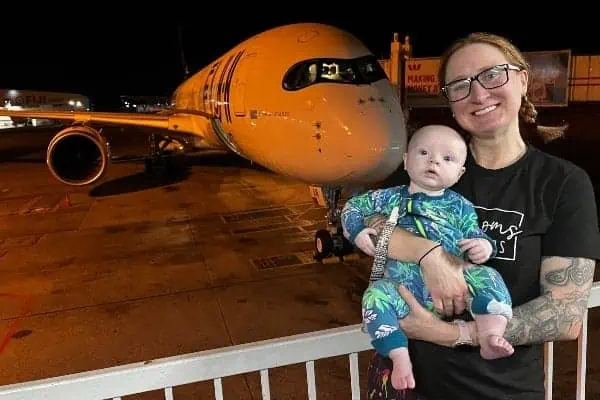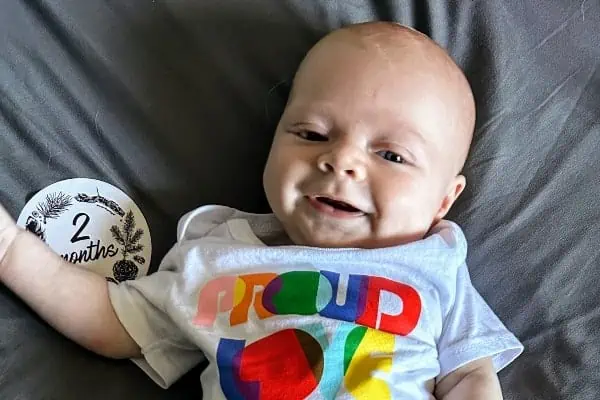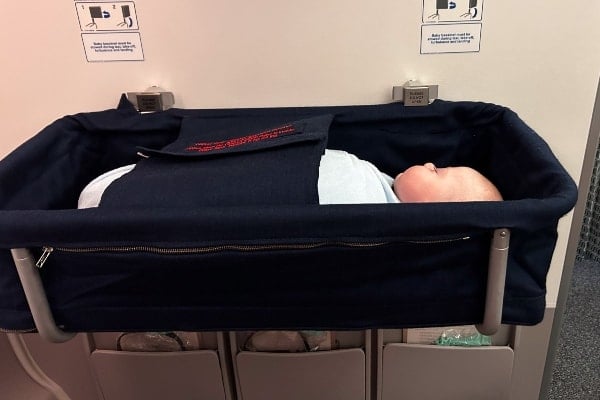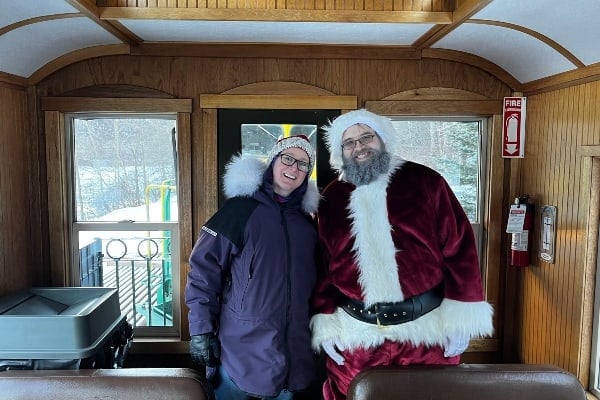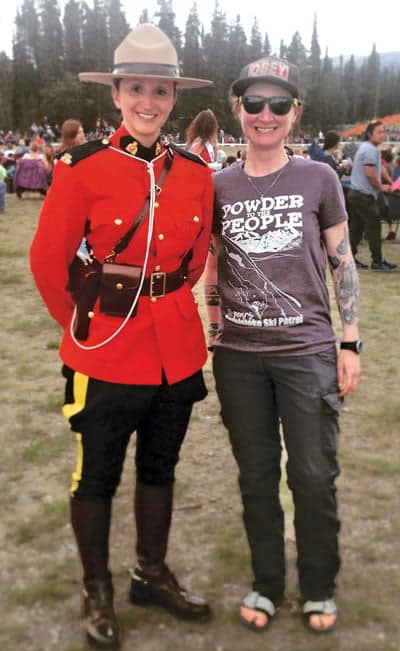 What does it take to be Canadian?
What does it take to be Canadian?
I’ve been in this country two-and-a-half years. After 18 months of processing, I received my permanent residency on Jan. 5, 2019 and started the march towards citizenship. In 2021, I will be able to take my citizenship test and officially call myself Canadian.
I was lucky. Being an Australian and New Zealand citizen I am entitled to temporary work visas to Canada and many other countries. Many are not always so lucky and the process can be daunting, time-consuming and expensive. I mean, I had to do an English exam (yes, I know I have a funny accent, but my mother tongue is still English) that cost $300 and is only valid for two years.
The Process: 1 + 1 = 2
Did you know 21.9 per cent of Canada’s population is made up of immigrants? How about that 12.6 per cent of Yukon’s population is made up of immigrants? We are the ones with the funny accents, working, living and adapting into our new home Yukon, Canada.
If you know an immigrant, then you know the process isn’t easy. It’s extremely stressful. There are so many options, from being sponsored by a spouse, to being sponsored by your work, to coming in on your own merit. I arrived on a highly skilled immigrant visa.
How does that work? Everything about me was allocated a number of points. For example, my age gave me 98 points. My education, my work experience, my adaptability, my funds, they all added up to a certain number of points. I spent 12 months sitting and waiting to find out if I reached the threshold to be invited to apply. For others, it can take longer. You sit and wait and the only consideration is your number. It doesn’t matter I’m from Australia. It doesn’t matter I’m already in the Yukon. It doesn’t matter I volunteer, or made a life, or any of the things that make me, me. I scored 447 points out of 1200. Every piece of paper had to prove I was 447 points.
Once invited to apply, you have a certain number of days to prepare all your documents and submit them. This includes any trip you’ve ever taken outside your country of residence and a police certificate from every place you’ve spent more than six months. For me that was nine police checks and I actually capped out the system for trips outside my residence.
Then you submit and wait. Express entry has a six-month turnaround and poof! You have your permanent residency.
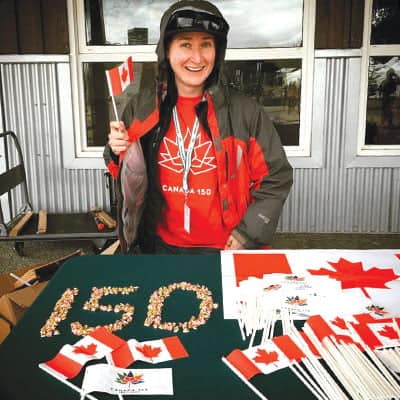 The Path to Canada
The Path to Canada
So why Canada? Why do we stress ourselves and spend a small fortune to come to Canada?
More than a fifth of Canada’s population is made up of immigrants. That percentage increases as you drill down the generations. Canada is a melting pot of cultures and languages. Similar to Australia and New Zealand, it’s a land of opportunity.
Here are some stories of fellow Yukoners who have called this place home.
Inga
Country of Birth: Germany.
How Many Years in Canada: 30 years.
Year you became PR/Citizen: 1991 PR, 2018 Citizenship.
Why did you decide to come to Canada: After high school I took a gap year that never ended … Well, instead of going back, I built my life in Canada.
Why did you decide to live in the Yukon: Because it is the best part of Canada!
What do you think are the key requirements to being a ‘good’ Canadian: I spent my first decade in Canada trying to figure that out. To get a handle on this culture, this identity I was joining, simply wanting to integrate in the flow of life here. At that time, being Canadian was still defined mostly as not being an American. I think I am more focused on what it means to me to live a good life and to live my life well, in community and through work.
What was the hardest part of becoming Canadian: Germany doesn’t have dual citizenship, so I had to wait for an opportunity to obtain an exemption under the German law in order to be able to become Canadian while retaining my German citizenship. I received that exemption certificate in 2016. The Canadian part was quite easy as I came via the live-in caregiver program which had a well defined path toward PR.
Chris
Country of Birth: Australia.
How Many Years in Canada: Eight years.
Year you became PR/Citizen: I got PR in 2014 and citizenship in 2018.
Why did you decide to come to Canada: I was living in Amsterdam and met a Canadian girl.
Why did you decide to live in the Yukon: In 2011, before I even moved to Canada. My partner got a job here.
What do you think are the key requirements to being a ‘good’ Canadian: The same requirements to be a good human being.
What was the hardest part of becoming Canadian: Getting permanent residency was the hardest part. There was so much paperwork and uncertainty. Getting citizenship was a breeze in comparison.
Abraham
Country of Birth: South Sudan.
How Many Years in Canada: Seven years.
Year you became PR/Citizen: Became citizen in 2015 after waiting for four years as PR.
Why did you decide to come to Canada: Came to Canada to study and work.
Why did you decide to live in the Yukon: Summers are great in Yukon. Love nature. Yukon has it all, wildlife, natural vegetation and lakes.
What do you think are the key requirements to being a ‘good’ Canadian: Your adaptability to Canadian way of life, i.e. culture and rule of law.
What was the hardest part of becoming Canadian: Definitely waiting. The clock was ticking very slowly as I waited and waited!
Gian
Country of Birth: Philippines.
How Many Years in Canada: 13 years.
Year you became PR/Citizen: 2008. One year, but my parents were here since 2001.
Why did you decide to come to Canada: Family and work.
Why did you decide to live in the Yukon: Mom and Dad came here first and my brothers and I followed.
What do you think are the key requirements to being a ‘good’ Canadian: A love for life and an awe for the Creator.
What was the hardest part of becoming Canadian: There was nothing really harder to being a Canadian compared to living in the Philippines. Maybe the cold weather, but after 13 years, you learn to enjoy it.
Mikey
Country of Birth: England, United Kingdom.
How Many Years in Canada: Eight-and-a-half.
Year you became PR/Citizen: 2018.
Why did you decide to come to Canada: Always been fascinated with Canada since boyhood. Travelled around the world, done several international mountain adventures and knew I wanted to be in the Rockies. Timing was right.
Why did you decide to live in the Yukon: The midnight sun, numerous lakes and underexplored regions ie: scrambles and hikes in the wilderness.
What do you think are the key requirements to being a ‘good’ Canadian: Friendly, hospitable and kind, plus cosmopolitan.
What was the hardest part of becoming Canadian: Cultural adjustment.
Naoto
Country of Birth: Japan.
How Many Years in Canada: 14 years.
Year you became PR/Citizen: 2012.
Why did you decide to come to Canada: Lifestyle, nature, culture.
Why did you decide to live in the Yukon: Wilderness, nature, freedom comes from low density, great community.
What do you think are the key requirements to being a ‘good’ Canadian: Loving winter, accepting different backgrounds of people.
What was the hardest part of becoming Canadian: Language. My first language is not alphabet-based so it took more effort to learn. Leaving all great Japanese food behind!
Rachel
Country of Birth: Michigan, U.S.A.
How Many Years in Canada: Two years.
Year you became PR/Citizen: I became a permanent resident in 2016.
Why did you decide to come to Canada: I was living in Skagway when I met my partner who is Canadian and living in Whitehorse. I moved to be with her.
Why did you decide to live in the Yukon: It feels fresh and the lighting is beautiful.
What do you think are the key requirements to being a ‘good’ Canadian: A sense of civic duty.
What was the hardest part of becoming Canadian: Converting between Fahrenheit and Celsius.

